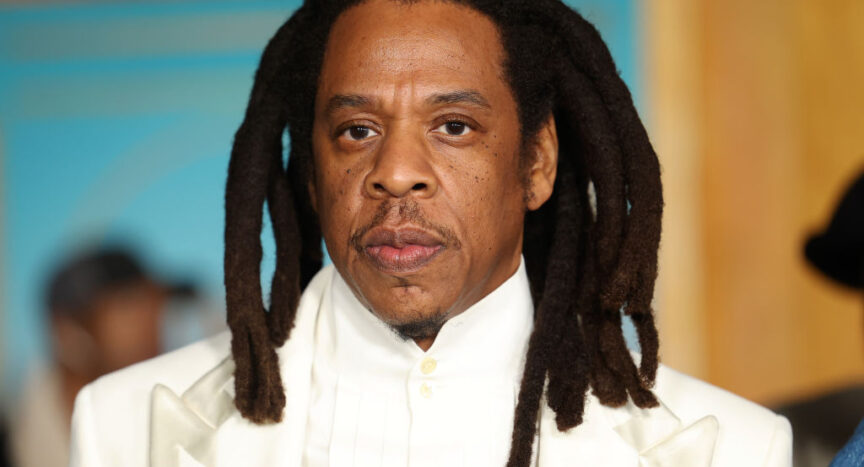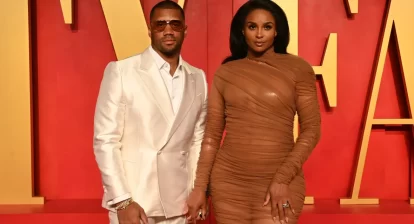The hip-hop mogul continues to leave an indelible mark on the culture.
Born Shawn Corey Carter, Jay-Z is not just one of the most successful rappers of all time. He’s a cultural icon whose influence extends far beyond music.
Jay-Z started from humble beginnings in the Marcy Projects of Brooklyn and rose to the heights of becoming a billionaire mogul. His legacy is rooted in his ability to evolve with the times while consistently setting new standards in the hip-hop industry. He has multiple classic albums, business ventures and philanthropic endeavors that have made him a key figure in the world of music, technology, fashion and social justice.
Jay-Z’s business acumen has redefined what it means to be a modern entrepreneur. He continues to leave an indelible mark on the culture.
Early life and education
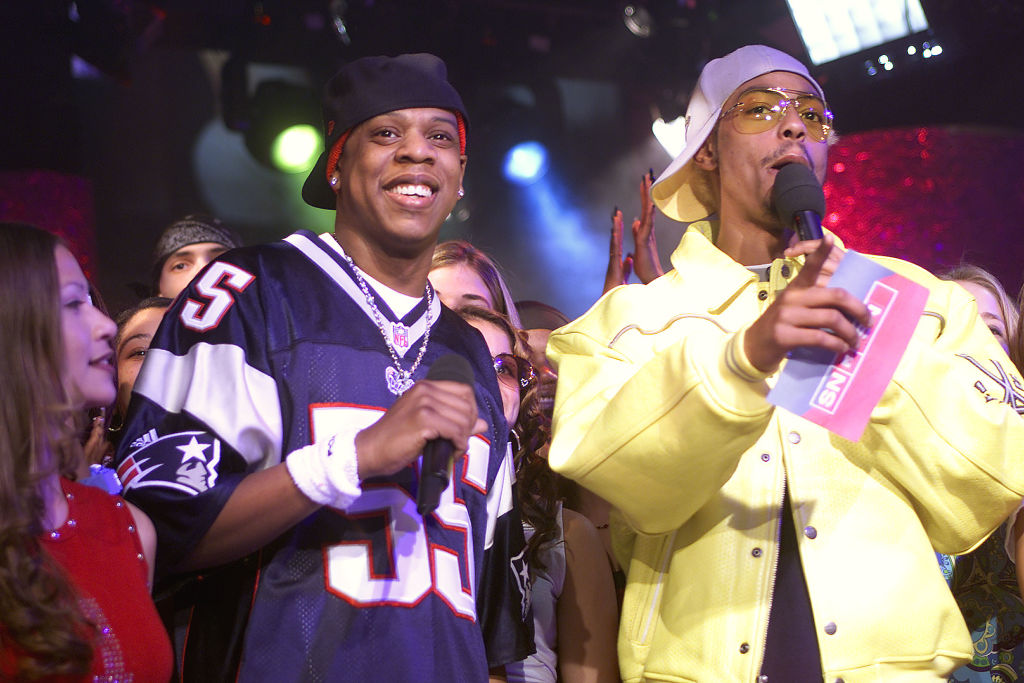
Jay-Z was born on Dec. 4, 1969. He was raised by his mother, Gloria Carter, after his father, Adnis Reeves, left the family when he was a young child. Growing up with a single mother in the Marcy Projects, he experienced the struggles of inner-city life firsthand. Surrounded by crime and poverty, his environment deeply influenced his music and became a central theme in his lyrics.
Jay-Z went to high school with other future legends such as The Notorious B.I.G. and Busta Rhymes. He eventually dropped out of George Westinghouse Career and Technical Education High School and got to the streets.
His first rap name was actually “Jazzy.” He was inspired by legends like Grandmaster Flash and The Sugarhill Gang, who helped pioneer hip-hop in New York. Eventually, he changed his name to the iconic “Jay-Z,” partly inspired by the J and Z subway lines near his projects.
Being a product of his environment, Jay-Z found himself in difficult circumstances, including selling drugs. But he was always focused on a way out, and he used these experiences to fuel his creativity.
Rise in the music industry
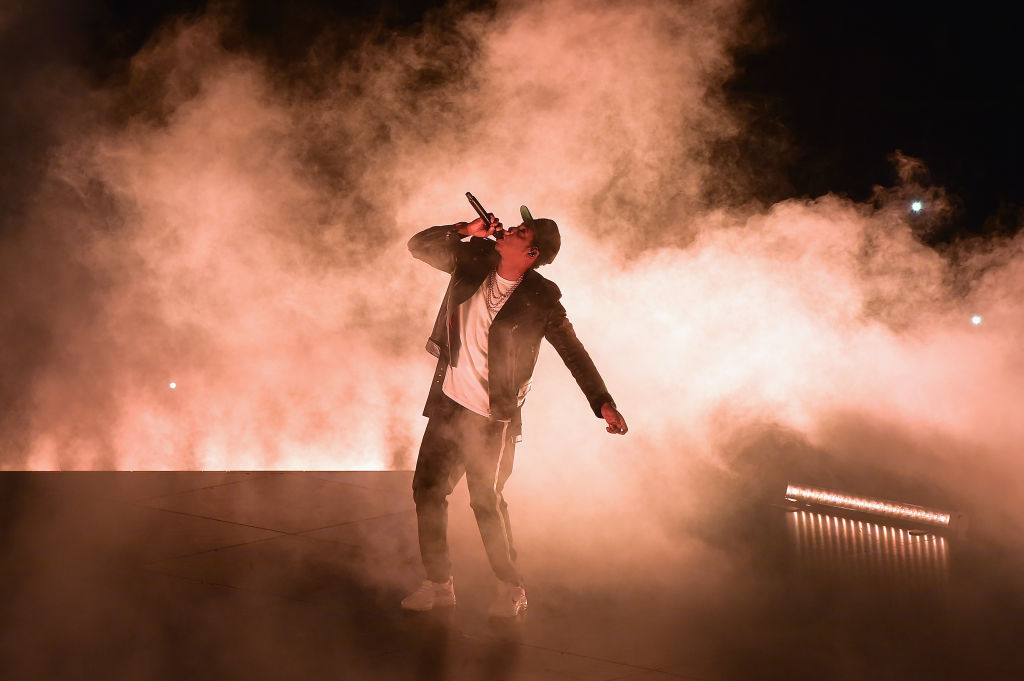
Jay-Z’s rise in the music industry started with him battle rapping in the streets of Brooklyn. His street credibility, combined with his neighborhood’s support for his rapping ability, showed him that hip-hop could be a promising career for him. In the early 1990s, he started recording demos independently.
His buzz around New York eventually attracted the attention of Dame Dash, who helped him shop his music to several labels. After many failed attempts at securing a record deal, they teamed up with Kareem “Biggs” Burk to launch Roc-A-Fella Records in 1994. Roc-A-Fella went on to independently release Jay-Z’s debut album, “Reasonable Doubt,” in 1996.
Key albums (1995 – 2005)
In the span of just 10 years, Jay-Z became a global rap sensation with multiple classic albums.
- “Reasonable Doubt” (1996): This album is often hailed as one of the greatest rap albums of all time. It received critical acclaim for its sharp lyricism and its matter-of-fact commentary on the reality of street life. Despite modest sales upon release, the album became a classic due to Jay-Z’s rising notoriety in the media. But, as of this writing, it’s also garnered a lot of controversy as Dame Dash, who currently owns 33% of Roc-a-Fella and the album, is in multiple negotiations to sell his ownership.
- “The Blueprint” (2001): This album marked another pivotal moment in Jay-Z’s career. It was released during a heated beef with rapper Nas, real name Nasir Jones, and contained a scathing diss called “Takeover,” which he premiered at Hot 97’s 2001 Summer Jam (that could be a whole article in itself. The album was mostly produced by Ye (formerly known as Kanye West) and Just Blaze. The soulful production in “The Blueprint” helped it receive critical acclaim as well as influencing the shift toward sample-based production in hip-hop.
- “The Black Album” (2003): Marketed as a retirement album, “The Black Album” was another critical success for Jay-Z. It featured hits like “99 Problems” and “Encore,” which are still some of the most streamed songs to this date. This was the first time Jay announced his retirement, starting the marketing trend of artists announcing their retirement in a usually successful attempt to sell more albums and make their comeback projects even more anticipated.
- “4:44” (2017): Though released later in his career, this was one of Jay-Z’s most introspective albums. It takes listeners deep into his psyche and viewpoint of the culture. A mix of impressive wordplay and modern flows, the album addresses personal topics such as infidelity, relationships and financial lessons. The title track, “4:44,” is meant to be a public apology to Beyoncé for infidelity, which attempts to showcase Jay’s vulnerability and growth. It continues to be acclaimed for its mature themes and common-sense style delivery.
Significant singles and hits
Jay-Z’s career has been marked by several iconic singles, most of which have left an indelible mark on both hip-hop and mainstream music.
- “Hard Knock Life (Ghetto Anthem)” (1998): As one of his most defining hits, “Hard Knock Life (Ghetto Anthem)” transformed Jay-Z into a household name. By sampling “Annie” the musical, he created a juxtaposition between the struggles of inner-city life and the optimism of success.
- “Big Pimpin” (1999): A huge song with the Houston duo UGK, “Big Pimpin” emphasizes a life of opulence and power. It garnered a ton of radio play for both Jay-Z and UGK and helped catapult UGK into the mainstream as well.
- “Empire State of Mind” (2009): This is another iconic single where Alicia Keys belts, “In New Yooork!” As a tribute to New York City, “Empire State of Mind” features some of the most amazing production and vocals in hip-hop. This quickly became the anthem for New Yorkers while resonating with listeners from all walks of life.
We could write a whole article on Jay-Z’s singles and hits, but these, along with the aforementioned songs, cemented Jay’s dominance in the culture.
Compilations and collaborations
Jay-Z is known to be a prolific collaborator. He hasn’t just conquered hip-hop but impacted various genres and musical styles.
- “03 Bonnie and Clyde” (2002): This iconic collab with Beyoncé highlighted their musical partnership and marked the beginning of their public relationship.
- “Watch the Throne” (2011): This collab album with Ye featured the smash hit, “Ni**as in Paris” and started the trend of solo hip-hop artists doing joint albums together in the mainstream.
- “Umbrella” (2007): This global hit with Rihanna was produced by The-Dream and Tricky Stewart. Jay-Z sets the tone for the track with metaphors about not being affected by negativity and his “rain man” ability to rap his verses without needing to write his lines.
- “Drug Dealers Anonymous” (2016): The raw lyricism of this track featuring Pusha T is highly praised by hip-hop purists. It dives into the bleak existence of having all the material possessions of being a kingpin while attempting to suppress all the personal struggles that come with it.
Live album and mixtapes
Live albums and mixtapes have played an important role in Jay-Z’s career. The live albums showcase his ability to push the boundaries of hip-hop performance.
- “Jay-Z: Unplugged” (2001): This album helped redefine how rappers can perform with live bands. Jay performed alongside The Roots for this intimate acoustic set.
- “B-Sides” (2015, 2019): This is a special concert series where Jay-Z performs rare tracks from his catalog instead of only mainstream hits. These shows have been a treat for hardcore Jay-Z fans to hear songs that showcase his raw lyrical prowess.
- “The Demos: Before Reasonable Doubt”: This is a collection of Jay’s demos before he broke into the mainstream. It showcases his lightning-fast delivery before slowing down the flow for Reasonable Doubt and subsequent releases. The audio has been circulating the internet and is for sale in a physical medium in various places online.
Notable feuds and conflicts

Jay-Z vs Nas
Jay-Z’s battle with Nas is still one of the most long-standing conflicts in hip-hop history. It continues to significantly shape both of their careers. It all started when Nas ghosted Jay on a studio session for his debut album. Since Nas didn’t show up, Jay decided to use a sample of one of his songs in “Dead Presidents II.”
Nas wasn’t cool with this, and it led to a few rounds of sneak disses in their music, which both are masters at. Eventually, Jay-Z went all out on “Takeover.” Nas clapped back with “Ether,” which is still regarded as one of the best diss tracks of all time. Jay tried to shoot back with “Supa Ugly,” but it lacked the impact of “Ether” and contained below-the-belt insults that fans at the time didn’t resonate well with.
Though they performed together in 2005 to symbolize a truce, there is still a phenomenon where Jay seems to release music on the same day as Nas.
Jay-Z vs Prodigy
Prodigy also caught some strays on “Takeover.” Jay-Z and Prodigy had been subbing each other for almost a decade. What started as friendly competition turned into an all-out lyrical assault.
Jay-Z vs DMX
DMX was a powerful emcee who was revered for his skills in hip-hop about as much as Jay-Z at the time. Eventually, fate brought them to the same place at the same time, and they faced off in a rap battle in a smoke-filled room as associates watched in awe.
Jay-Z vs Lil Wayne
As Lil Wayne was on the most incredible mixtape run the world has ever seen in the mid-2000s, he started to claim he was the best rapper alive. Jay-Z felt he had to respond if he was to hold his throne, but wanted to do it subtly by sending sneak jabs in records to keep industry relations copacetic.
However, many people feel Jay-Z’s major chess move happened in 2024 when he chose Kendrick Lamar to perform at Super Bowl LIX in New Orleans over Lil Wayne.
Musical style and technique

Jay-Z’s musical style has evolved significantly over the years. Although he’s always adapted to the current times, he still finds a way to keep a soulful hip-hop element to his tracks.
He started out using a superfast, complex flow that amazed people on the streets of Brooklyn, but he soon realized he had to slow it down a little to appeal to a more mainstream audience. This evolution also allowed him to deliver more profound themes.
Jay-Z’s lyrical themes range from his personal experiences to broader societal reflections. Early albums such as “Reasonable Doubt” and “The Blueprint” series explore street survival, while later works such as “Magna Carta Holy Grail” and “4:44” delve into themes such as personal growth, legacy and social responsibility.
His ability to blend commercial appeal with thought-provoking content continues to influence countless rappers in terms of style and career trajectory.
Business ventures: Building the Roc Nation empire
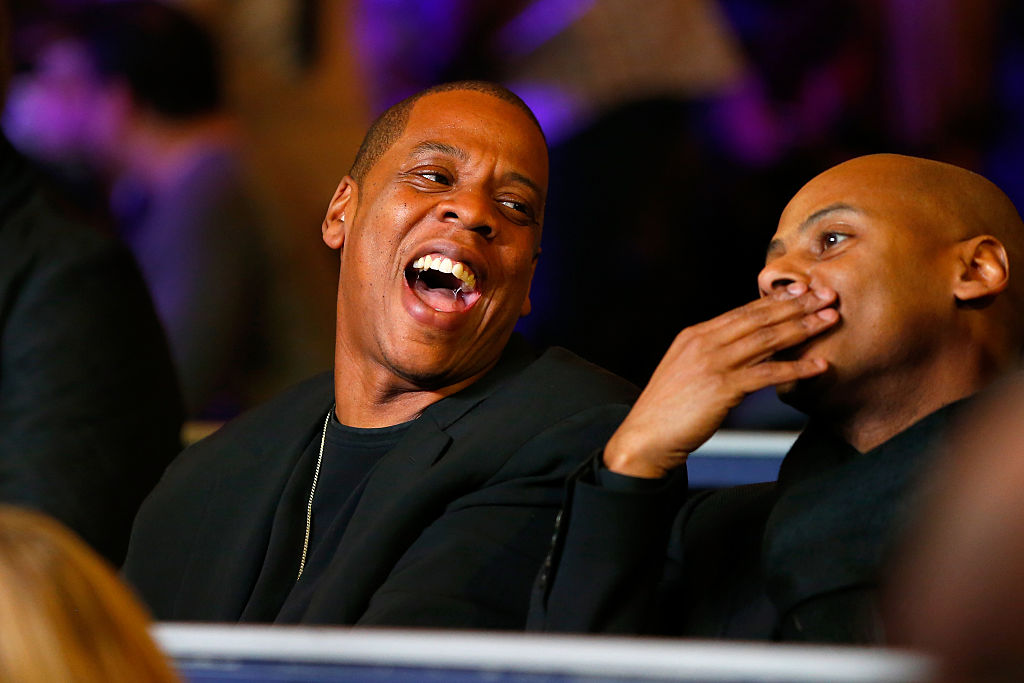
Jay-Z’s influence on culture is profound, not only through his music but through his business acumen.
Technology ventures
Jay-Z’s foray into tech with TIDAL marked a significant turning point in the music streaming industry. When he acquired the platform in 2015 for $56 million, he touted it as an artist-owned service, distinct from competitors such as Spotify by offering higher royalty payouts to musicians.
TIDAL was marketed as an artist-friendly service that provided a premium and high-fidelity option. Jay-Z eventually went on to sell it to Square Inc. for $302 million.
Ownership in sports teams
Jay-Z has had a significant involvement in sports ownership. In 2003, he acquired a minority stake in the Brooklyn Nets. His influence played a key role in the branding and cultural shift of the franchise, including the iconic black-and-white uniforms.
Unfortunately, due to a conflict of interest between the NBA and his growing sports agency, Roc Nation Sports, he was forced to sell his stake in the Nets in 2013. Jay-Z’s influence continues to expand through his new company, which represents top athletes such as Robinson Cano and Kevin Durant.
Media and entertainment projects
Jay-Z also played a significant role in other areas of the entertainment industry as both a producer and executive.
- “The Harder They Fall” (2021): Jay-Z produced this western film where an outlaw reunites with old acquaintances upon learning his enemy is being released from prison.
- “The Book of Clarence” (2023): He worked closer with Jeymes Samuel to create this film about a man who searches for a way to pay off his debt after being inspired by the rising Messiah.
- Super Bowl Halftime Show: Jay-Z officially became the co-producer of the Halftime show in 2019. He selects the artists that will perform at the Super Bowl as part of the Roc Nation deal.
Personal life
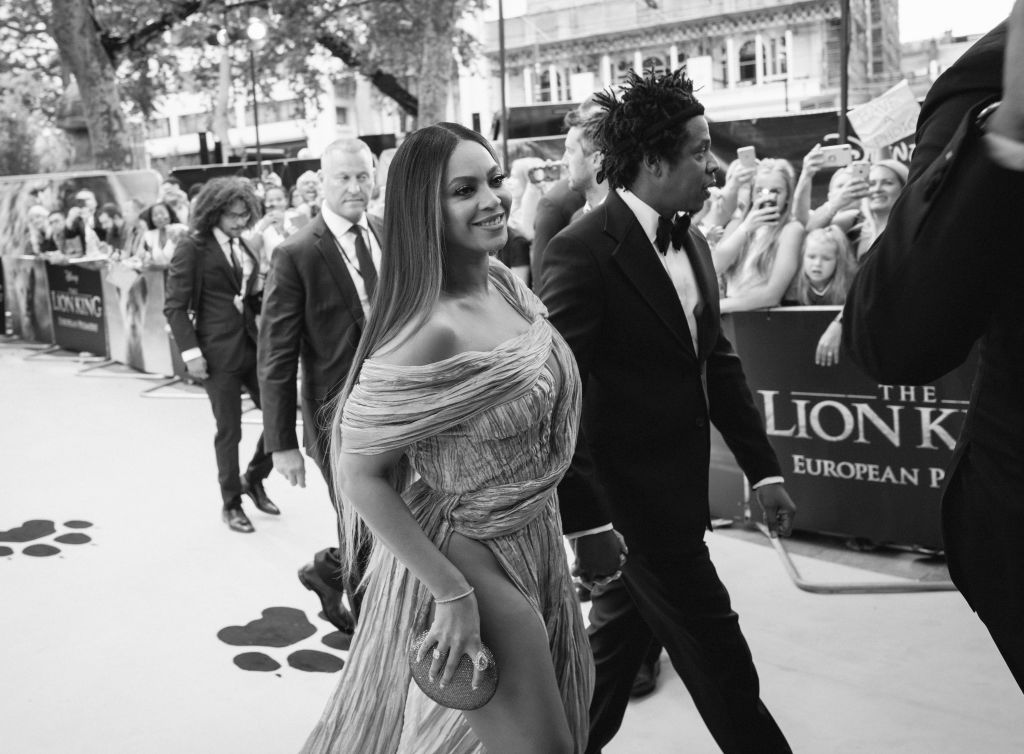
Jay-Z’s personal life is marked by high-profile relationships, family dynamics and legal issues.
- Marriage to Beyoncé (2008): This is one of the most celebrated unions in the entertainment industry. Jay-Z and Beyoncé have three children together: Blue Ivy, born in 2012, and twins Sir and Rumi, born in 2017. Being a power couple did not come without struggles, though. Jay-Z’s infidelity was exposed in Beyoncé’s album “Lemonade,” and he owned up to it on his own album, “4:44.”
- “Decoded” (2010): Jay-Z’s memoir goes into explicit detail about how his former lifestyle influenced his music. He confessed to being deeply involved in selling crack cocaine. He even goes into detail about how he once sold crack to his own mother.
- Lance “Un” Rivera trial (1999): Jay-Z was allegedly involved in stabbing Lance when he caught him allegedly bootlegging his album “Vol. 3… Life and Times of S. Carter.” Eventually, Jay pleaded guilty to a lesser charge and was put on probation.
Philanthropy and social impact
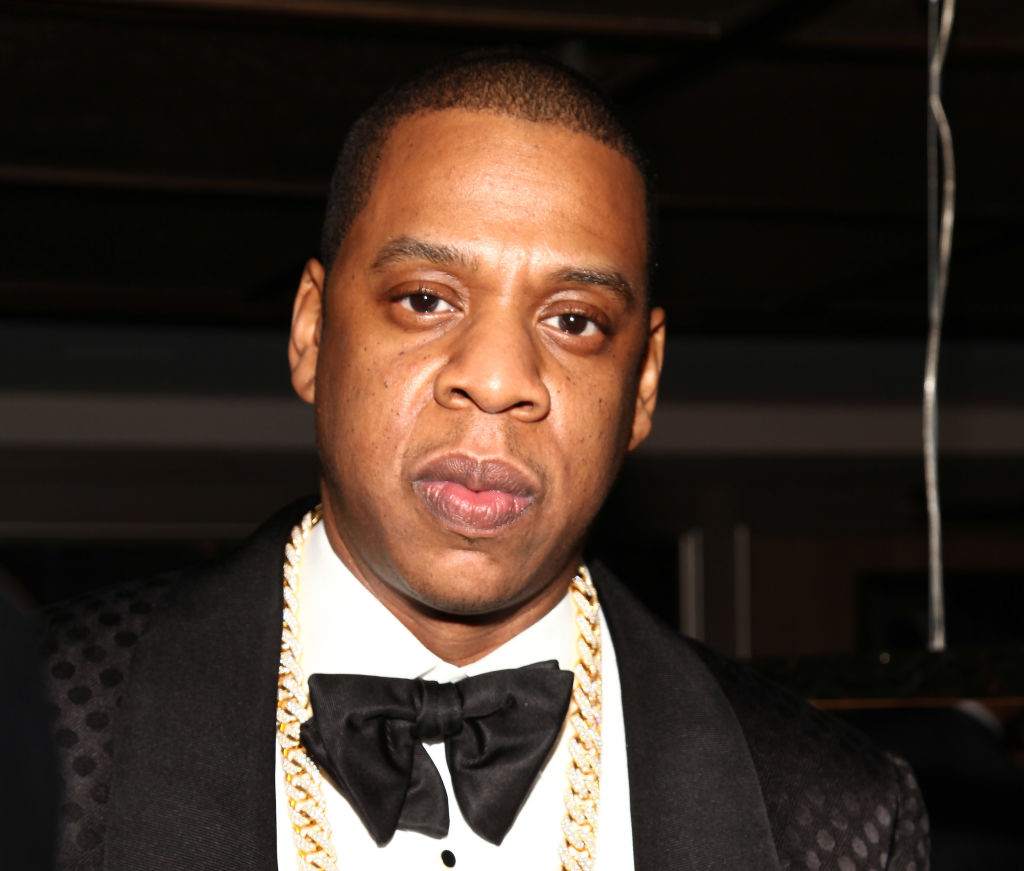
Social justice and philanthropy are nothing new to Jay-Z.
- Shawn Carter Foundation (est. 2003): This foundation focuses on providing scholarships to underserved youth and has donated over $4 million to various programs.
- “Rest in Power: The Trayvon Martin Story” (2018): Jay produced this documentary on Trayvon Martin to highlight systemic racial injustices in the U.S. criminal justice system.
- Team ROC: Jay’s most recent philanthropic endeavor shows his commitment to fighting systemic inequality. He continues to advocate for bail reform and ending mass incarceration.
Cultural influence and legacy
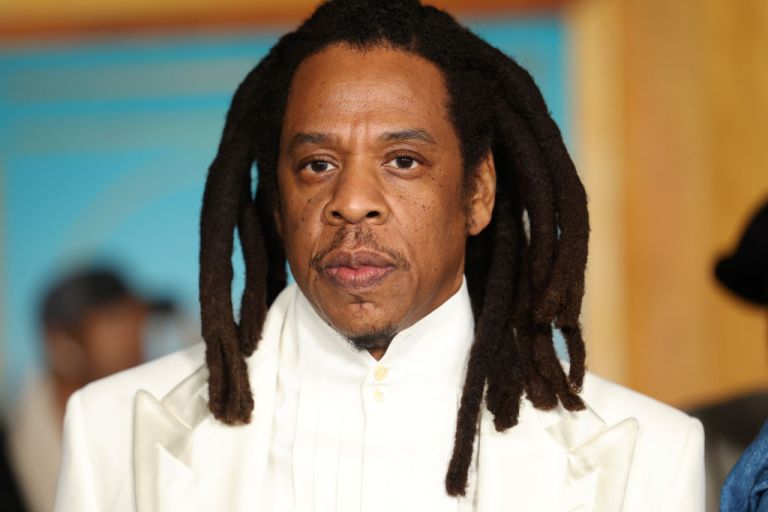
To sum up this short Jay-Z biography, his legacy is monumental. His cultural influence not only rings out through the music industry, but across business, fashion and social injustice. His impact on hip-hop is so profound that when Jay-Z makes a statement, everyone listens.
Jay-Z’s success also paved the way for other rappers to venture into business. From clothing lines to alcohol brands, Jay-Z showed others how it’s done by building brands like Rocawear and D’USSÉ cognac.
His legacy is one that will continue to shape the future generations of entrepreneurs.
Lifestyle
- Cardi B admits she regrets her ex from Paris
- How a doctor at Johns Hopkins has been using diabetes medication to treat alopecia
- Taraji P. Henson reveals what inspires her advocacy
- ‘Choosing Motherhood,’ episode 7: Eboni K. Williams pushes back on negative perceptions of single motherhood
- T.I., Tiny, and OMG Girlz win $71 million following lawsuit against toy manufacturer
!function(){var g=window;g.googletag=g.googletag||{},g.googletag.cmd=g.googletag.cmd||[],g.googletag.cmd.push(function(){g.googletag.pubads().setTargeting(“has-featured-video”,”true”)})}();

